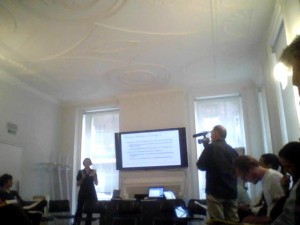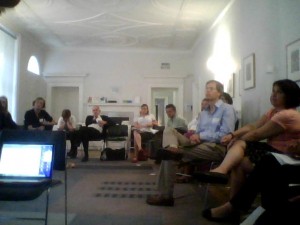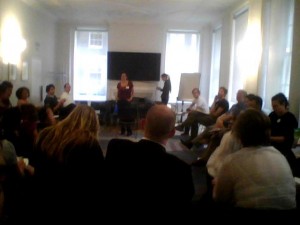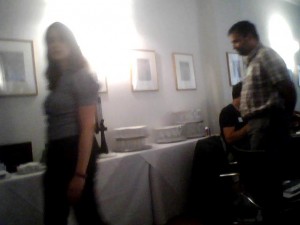George mentioned Blaze Foley today in his session with us. Here is one of his songs.
Author Archives: admin
It’s time for dinner!
Session 5 (Wednesday)
After a brief hour-long break (tea time — it is England after all!), Jon and Jen talked about designing workshops to help students push past Donna’s “mindsets that serve as barriers to justice“.
- Group 1: Heather from EWB-Queen’s (Canada) spoke about connecting educators with each other and the ESJP network. This would help interest more engineering educators in teaching about justice in their classes.
- Group 2: Use roleplaying activities to highlight privileges of class, race, etc. Students must form their own values. Educators cannot simply lecture on their own values. Student input can be encouraged through the use of roundtables, buzz groups.
- Group 3: We questioned whether assuming these mindsets would reinforce them. Use roleplaying to face barriers like the Poverty Challenge.
Session 4 (Wednesday)
I’m looking forward to Donna and Katy’s workshop. They’ve started out with talking about Ursula Franklin and scrupling (More here).
Donna and Katy asking the group to brainstorm future collective ESJP action
Candy break!
Without differentiation, we would look like this
://www.youtube.com/v/jVygqjyS4CA&hl=en_US&fs=1″ type=”application/x-shockwave-flash” allowscriptaccess=”always” allowfullscreen=”true” width=”480″ height=”385″>
Session 3 (Wednesday)
George Catalano joined us by Skype as we headed into the third session today. After some Skype issues (darn technology!), we switched to just audio and the presentation went well.
- Complex system as "integral community"
- Nonhumans and ecosystems are morally significants beings with interests and rights
- Differentiation – emergent diversification from particles to life forms leading to biodiversity
- Subjectivity – everything has a voice and an inner sense
- Community — every atom in the universe is immediately influencing every other atom in the Universe, no matter how distant
George then led us in "imagine" sessions which had us imagining what our conference would look like without differentiation, subjectivity, and community.
George Catalano is joining us on Skype.
08-04-153538″ alt=”” src=”http://esjp.org/wp-content/uploads/2010/08/2010-08-04-153538-300×225.jpg” />





